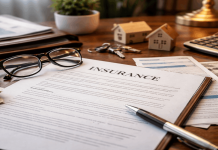There are several different types of business insurance policies, and the costs will vary according to the specific risks you want to protect. The most important factors to consider when determining the cost of business insurance include your business type, profession, and number of employees. Other factors include whether you need higher coverage limits or have a history of making claims.
General liability insurance
General liability insurance covers you against claims that may result from a customer’s injury or property damage. A general liability policy pays medical bills and legal fees for those who suffer injuries or property damage as a result of your business’s negligence. It can also cover property damage that may be accidental. Having a general liability policy can protect your small business from such financial losses.
Most business insurance providers offer general liability insurance. It’s often packaged with other insurance policies, including business property and income protection. You may find a better deal by purchasing a business owner’s policy. To compare prices, NerdWallet recommends getting quotes from several providers. It’s always a good idea to have enough information to make the best decision.
Purchasing general liability insurance is an important decision for any business. It covers a variety of potential risks in almost every industry. It pays for medical costs if an accident happens on your property, and it also pays for the cost of replacing the property. In addition, it covers legal expenses and damages if you are sued.
General liability insurance is the most important business insurance, and is usually the first line of insurance purchased. It is required by law in most states, and businesses are often required to carry it as part of their contracts. If you don’t, you won’t be covered if a customer sues you for causing them pain or property damage.
Commercial general liability insurance covers a number of risks, including injuries, property damage, and advertising and marketing costs. The insurance policy protects businesses from lawsuits based on negligent or intentional actions. However, it is important to note that commercial general liability does not cover intentional damages or accidents involving vehicles. It also provides coverage for the costs of defending the suit.
Workers’ compensation insurance
If you own a small business, you may need to take out workers’ compensation insurance. This type of insurance covers injuries sustained at work and can also cover legal fees and expenses. Many states require that all businesses with one or more employees have this insurance coverage. It’s easy to obtain a quote and get a comprehensive policy. Simply give your insurance agent a few details about your business and they will do the rest.
The cost of workers’ compensation insurance for business will depend on several factors, including the type of work you do, the number of employees, and any previous claims. You can expect to pay approximately $10-$25 per employee per year with this insurance. You can also ask your insurer for a quote based on your payroll, which can help you to save money.
One way to reduce the cost of workers’ compensation insurance for your business is to offer incentives for safe behavior. For example, you can offer bonuses if your employees complete safety training and wear safety equipment, or you can offer discounts to employees who wear hard hats. This will make your premiums go down.
In addition to workers’ compensation insurance, you should also purchase employer’s liability insurance, which protects your business from lawsuits. Some states do not require employers to purchase this coverage, which means that you may have to buy this insurance separately. This can be costly, but it is essential for your business.
Whether you own a small business or a larger one, you need workers’ compensation insurance for your employees. This coverage is mandatory in most states. Not having this coverage can result in fines and even criminal charges. You need to find out what your state’s requirements are. You should also find out who is exempt from workers’ compensation insurance before you hire anyone.
Using a third-party insurance broker can help you reduce your premiums. These companies typically offer better rates than you can get on your own. However, you must make sure you choose the best option for your business. Some insurance companies offer bundled policies.
Non-owned auto insurance
The cost of hiring auto insurance depends on several factors. This includes the number and value of the vehicles, the age and driving history of the drivers, and specific industry risks. For example, it will cost more to insure large machinery than a simple business car for carrying goods. Young employees with poor driving records will also cost more to insure than more experienced drivers.
Non-owned auto insurance is a great way to protect your business assets, while still maintaining the ability to protect yourself against lawsuits. Although your policy doesn’t cover your own vehicles, it does protect you if an employee is involved in an accident. You can also use this type of insurance to pay for any damages to a third-party’s vehicle.
When choosing non-owned auto insurance for your business, make sure it covers your employees’ personal vehicles. It is especially important to have non-owned auto insurance for business liability because your employees may use their personal vehicles to work. However, if your employees’ personal cars are involved in a wreck, your policy will likely not cover the cost of repairs or replacement. This type of insurance is often included with a general liability policy.
If you are unsure about non-owned auto insurance, talk to a local insurance agent. The best way to ensure that you have the best coverage is to compare quotes. You will find that some companies offer better rates than others, but make sure you choose the one that suits your needs.
In order to find non-owned auto insurance, you need to know a few things. You need basic personal information, your driver’s license number, and your payment method. Most major auto insurance companies offer non-owner insurance policies. However, none of them offer a quote online – you have to call them.
Hired and non-owned auto insurance can cost anywhere from $134 to $172 per month, depending on the provider and the number of vehicles and drivers covered. Some providers also offer add-on coverage for $10 per month. In addition, extra drivers can be added on for $100 per year.
Cost of commercial property insurance
There are many different factors to consider when determining the cost of commercial property insurance for your business. The type of business you run, the number of assets and the type of property you own will all have an impact on the price. For example, larger companies will likely pay more for insurance on their property than a small one. A manufacturing business, for example, will be at a higher risk for property damage than an office-based business.
A recent survey by The Hartford found that the cost of commercial property insurance was about $662 for a small business, and the cost increased based on the size and type of property. The cost is significantly higher for large businesses, which pay anywhere from tens of thousands of dollars a year in premiums.
In addition to physical property, businesses also have inventory, equipment and technology that may be in their possession. This type of property is more difficult to assess, but regular inventory and records of purchases can help determine the value. Business owners should also consider the replacement cost of their properties, which is the amount that would be needed to replace the items in today’s dollars. Since replacement costs are higher than the actual costs of repair, this type of coverage typically requires a higher premium.
Location of the business is another factor that determines the cost of commercial property insurance. In areas with high crime rates and environmental perils, the premiums for insurance will be higher. The proximity of the business to a fire station and an alarm system will also help reduce costs. Similarly, buildings with recent renovations or fire-proof exteriors will usually cost less to insure.
In addition to the physical property value of a business, commercial property insurance will cover the contents of a business. The costs vary considerably, and are typically determined by the business’s assets and location. In general, the best way to obtain commercial property insurance is by choosing a Business Owners’ Policy (BOP).










